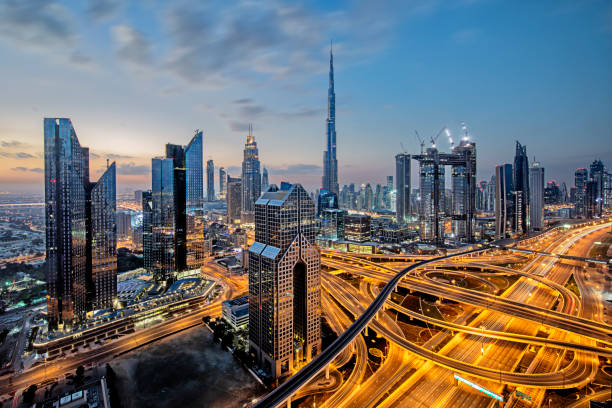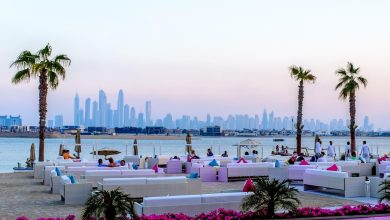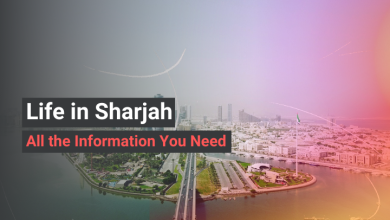Living in UAE: Pros and Cons

The United Arab Emirates (UAE) is a country in the Middle East that has attracted people worldwide to live and work. It is known for its high standard of living, tax-free income, and luxurious lifestyle. However, like any other place, living in UAE has its pros and cons. In this article, we will discuss some of them.
Pros
- Tax-Free Income: One of the most significant advantages of living in UAE is that the income earned by residents is tax-free. This means that people get to keep more of what they deserve.
- High Standard of Living: UAE has a high standard of living, with modern infrastructure, world-class healthcare facilities, and quality education.
- Multicultural Environment: UAE is a melting pot of different cultures, with people from all over the world living and working here. This makes it a great place to meet new people and learn about other cultures.
- Safety and Security: UAE is known for its strict laws and low crime rates, making it a safe place to live and work.
- Job Opportunities: UAE has a growing economy and a thriving job market, with plenty of job opportunities in different sectors.
Cons
- High cost of living: While there is no personal income tax, the cost of living in the UAE can be high, especially in major cities like Dubai and Abu Dhabi.
- Extreme weather: The UAE experiences extreme heat during the summer months, which can make outdoor activities challenging.
- Cultural restrictions: While the UAE is generally tolerant and open-minded, there are still some cultural restrictions that may take some getting used to, such as the conservative dress code and restrictions on alcohol consumption.
- Limited political freedom: The UAE is a monarchy, and there are limitations on political freedom and free speech.
- Visa regulations: Obtaining a residency visa in the UAE can be a complicated and time-consuming process, which may be a drawback for some ex-pats.

Factors to consider when living in UAE
If you’re thinking about moving to the United Arab Emirates (UAE) or have already made a move, there are many things you’ll need to know to help you settle in and make the most of your experience. From the weather to cultural norms, etc.
Weather:
The weather in the UAE is typically hot and dry, with temperatures often exceeding 40°C during the summer months. Staying hydrated and wearing appropriate clothing is essential to avoid heat stroke and other heat-related illnesses. During winter, temperatures are milder and more pleasant, making it an ideal time to explore the outdoors.
Culture:
The UAE is a diverse and cosmopolitan country with many different cultures and religions. Islam is the official religion, and respecting local customs and traditions is essential. Dress modestly, especially when visiting mosques or other religious sites. Alcohol consumption is allowed in licensed venues, but public intoxication is frowned upon.
Food:
Food in the UAE is heavily influenced by Middle Eastern, Indian, and African cuisines. Popular dishes include shawarma, falafel, hummus, biryani, and kebabs. There are also plenty of international restaurants offering cuisine from around the world. Eating out can be expensive, but many affordable options are available.
Transportation:
The UAE has a well-developed public transportation system, including buses, taxis, and metro trains. The Dubai Metro is the most comprehensive driverless metro system in the world and is an efficient way to travel around the city. Driving in the UAE can be challenging due to heavy traffic, so taking precautions and being aware of local driving customs is essential.
Entertainment:
The UAE is home to some of the world’s most famous attractions, including the Burj Khalifa, the Dubai Mall, and the Sheikh Zayed Grand Mosque. There are also many outdoor activities, such as desert safaris, beach trips, and water sports. Shopping is a popular pastime, with many malls offering luxury brands and high-end goods.
Read More About Property Taxation in UAE: Understanding the Basics
FAQs related to living in UAE
Is it safe to live in the UAE?
Yes, the UAE is considered a very safe country. Crime rates are low, and the government has implemented strict laws and regulations to ensure the safety of its residents.
What are the requirements for obtaining a residency visa in the UAE?
The requirements for obtaining a residency visa vary depending on your specific situation, such as whether you are employed, starting a business, or studying in the UAE. Generally, you must provide a passport, a valid Emirates ID card, proof of medical fitness, and a residency permit application form.
What is the healthcare system like in the UAE?
The healthcare system in the UAE is generally of a high standard, with both public and private options available. The government provides free or low-cost healthcare to Emirati citizens, while ex-pats must have health insurance through their employer or a private provider.
What is the education system like in the UAE?
The education system in the UAE is also of a high standard, with both public and private schools available. The government provides free education to Emirati citizens, while ex-pats are required to pay fees to attend public schools. Private schools often offer international curriculums and are popular among ex-pats.
What are the cultural norms and customs in the UAE?
The UAE is a Muslim country with widely observed Islamic traditions and customs. Dress modestly, especially when visiting mosques or other religious sites. Alcohol consumption is allowed in licensed venues, but public intoxication is frowned upon. Respecting local customs and traditions is essential, such as removing your shoes before entering someone’s home.
Conclusion
Living in the UAE can be a rewarding experience with many unique opportunities. It’s essential to respect local customs and traditions while embracing the diverse culture and lifestyle that the country offers. With the proper preparation and mindset, you can make the most of your time in the UAE and enjoy all it offers.




